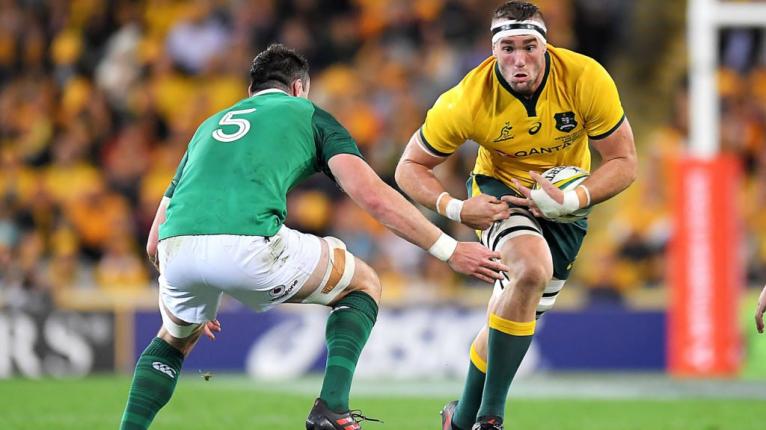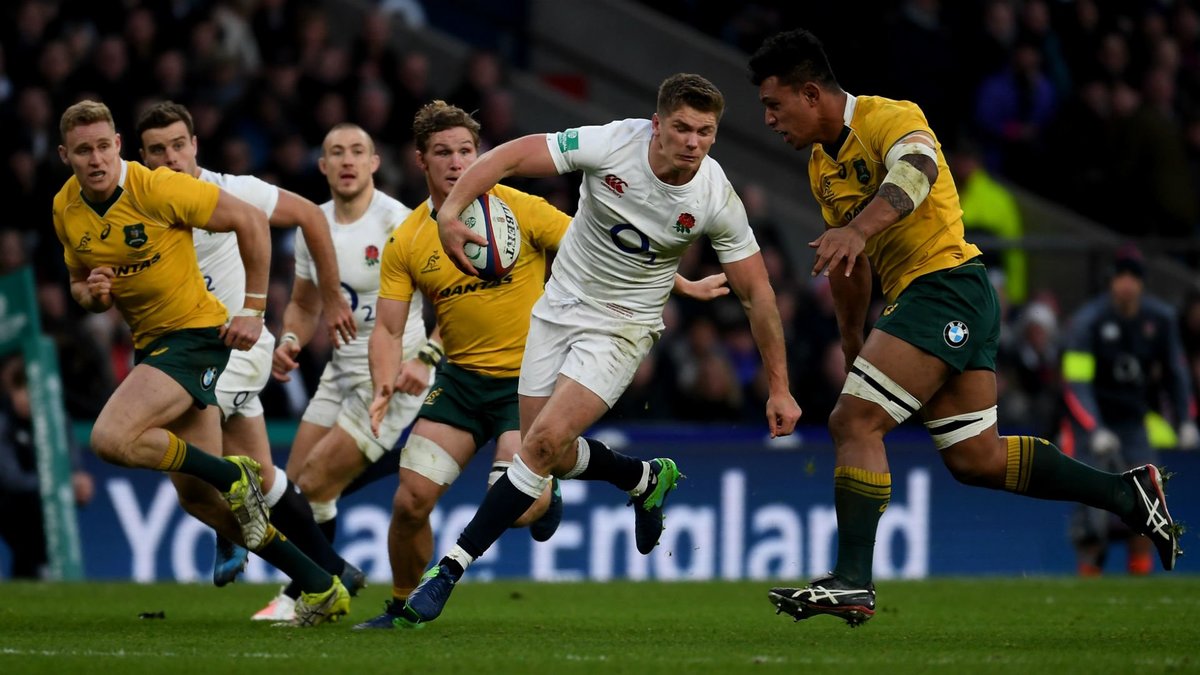One of rugby’s oldest and most anticipated cross-hemisphere rivalries is set to be renewed this weekend, as Australia visit Twickenham to take on England for the 50th time.
The Wallabies currently boast 25 wins to England’s 23, but with the hosts enjoying a five-match win streak, as well as victories in nine of the last eleven encounters, the balance of power between the two sides has been shifting in England’s direction over the last eight years.
Both Eddie Jones and Michael Cheika have named their sides for Saturday’s contest and we have picked out some key battles that will be waged by the two sides and examine who has the advantage in those respective areas.
(*) RugbyPass Index scores
Ben Youngs (81) and Owen Farrell (90) vs Will Genia (85) and Matt Toomua (70)
The two half-back combinations are going to dictate where and how the game is played on Saturday and Youngs and Farrell have form on their side. Both players performed well against South Africa and New Zealand and if it were not for Farrell’s arrival from the bench at half time against Japan, who knows how that contest might have ended up?
As for Australia, they have tinkered slightly more on this tour, starting Genia and Bernard Foley against Wales, before moving Foley to inside centre against Italy in order to accommodate Toomua, and giving Jake Gordon the start at scrum-half. In neither match was the world set alight, but there was an increased control in the game against the Azzurri.
If there’s an advantage here, in terms of dictating where the game will be played and controlling the tempo of the contest, it would seem to be with England, although there is not much in it. Look for wing Joe Cokanasiga to help England win back contestable kicks and reward the accuracy of Youngs and Farrell.
Kyle Sinckler (66) and Maro Itoje (92) vs Sekope Kepu (72) and Izack Rodda (89)
These are four players who will be key at the scrum, lineout and in generating front foot-ball for their sides.
Sinckler and Itoje are two men England will lean on heavily to make up for the absences of Mako and Billy Vunipola, and they have been the hosts’ two most consistent carrying threats in the pack over the last three weeks. It’s a smaller sample size, but Rodda has been doing the same for Australia and his rise to prominence at the international level over the last 12 months has been extremely welcome for Cheika.
Rodda has been surging of late, as evidenced by his lofty RPI score, whilst Sinckler may be the strongest carrier of the four players. Itoje could well help England edge the lineout battle with his vertical ability and skill at adjusting in the air, whilst the scrum should be dictated by how Ben Moon and Scott Sio deal with the two tightheads, and it looks to be an even contest on paper.
If England have the edge in the lineout, Australia could well have it in overall carrying threats among their forwards, with Kepu, Tolu Latu, Adam Coleman and even David Pocock providing them with front-foot ball when they need it.

Elliot Daly (86) vs Israel Folau (85)
With Daly playing at outside centre week in, week out at club level and Folau one of the best full-backs in the game, this is an uphill battle for the Wasps man.
Daly’s positioning and dealing with contested aerial balls has been in the spotlight over the last few weeks, whilst these are responsibilities that Folau excels at, with his reading of the game from the back almost beyond reproach. If either team kicks loosely, both full-backs are threats to punish them, but in a more measured kicking game, Folau will have the advantage in dealing with the kicks where he is put under pressure by chasers.
Of course, Daly’s cannon of a left boot offers England a fillip in the territory battle and an ability to have a go at the posts from over 50m, but in the overall match-up, the advantage has to be with the Wallabies.
Sam Underhill (64) vs David Pocock (85) and Michael Hooper (86)
In the aftermath of England loss to New Zealand, Jeremy Guscott did an excellent analysis of Underhill’s impressive performance, but one point of contention in it was that Underhill would need to become more selective in his involvements in the game to become a true ‘game-changer’. In short, his eagerness for work defensively was holding him back from creating more turnovers.
Contrary to that, Underhill could thrive against Australia by continuing to be less selective, with the physicality he brings in the tackle, capable of driving ball-carriers back on the gain-line, a game-changing attribute in itself, especially against two operators on the ground as adept as Pocock and Hooper. If Underhill can drive ball-carriers backwards, it denies those two back rowers the opportunity to flood forward and deliver quick ball.
Likewise, when England are attacking, Underhill needs to be ruthless and efficient in his clearing of the two Australians, lest they manage to latch onto the ball and cause England ball-security issues. It’s a role both Chris Robshaw and James Haskell have performed well in recent encounters with Australia and now that burden falls on the shoulders of Underhill.
Expect another strong showing from the Bath flanker in this area, as well as his England teammates, who have looked savvier at the breakdown of late. That said, they will struggle to keep ‘Pooper’ quiet for 80 minutes and anytime support is slow to the ruck, the Wallabies will be a threat to steal and launch a counter-attack.
Watch: Pete Samu and Izack Rodda talk to the media ahead of the match with England on Saturday.













































































